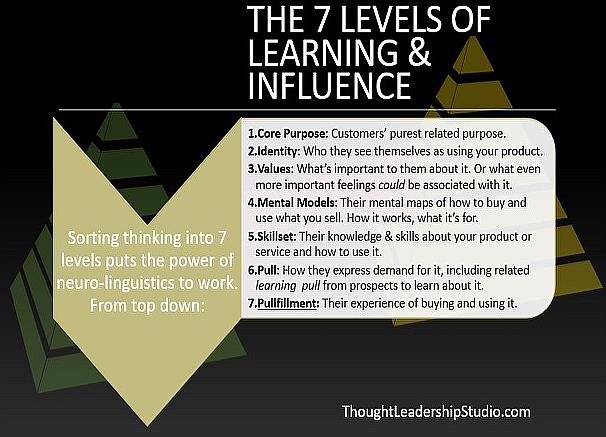Click to search: #all, #artificialintelligence, #branding, #coaching, #consulting, #contentmarketing, #contentwriting, #creativity, #customerexperience, #entrepreneurship, #experiencemarketing, #faqs, #imagination, #influencermarketing, #infographics, #innovation, #insight, #inspiration, #josephcampbell, #leadership, #marketing, #marketingresearch, #marketingstrategy, #marketlistening, #marketresearch, #massinfluence, #mentaltraining, #motivation, #neurolinguisticprogramming, #nlp, #onlinereviews, #paradigms, #paradigmshifts, #persuasion, #pullfillment, #quotes, #statistics, #strategicthoughtleadership, #systemsthinking, #tesla, #thoughtexperiments, #thoughtleadership, #thoughtleadershipexamples, #thoughtleadershipmarketing, #thoughtleadershipmodel, #workshop
A paradigm is a more global, universally-applied belief system (or, Mental Model). As with all belief systems, they filter out what doesn't match the pattern. In Systems Thinking, changing a paradigm is the highest leverage for impacting a system, which is where real change comes from, whether that system is a product or service category, market segment, field, profession, or customer experience.
All blog posts on Thought Leadership Studio about paradigms. Click on a hashtag above to search other topics.

How can we ensure AI doesn't make us mentally lazy? A Systems View and invitation to share ideas.

Know what level you Influence on to maximize your positive impact. Tap into the power of higher level influence and higher level learning.

Paradigms are entrenched mindsets that act as filters. They are like sunglasses that only let in certain colors but not others.

New paradigms and the responses to them follow 3 types of vectors.

Buckminster Fuller wrote, "We are called to be architects of the future, not its victims."
Listen or Subscribe to Podcast